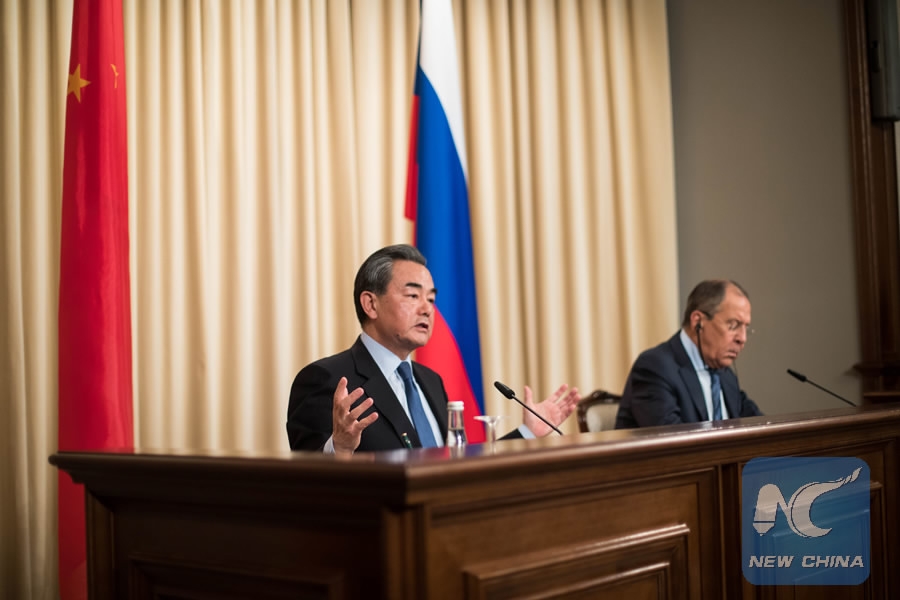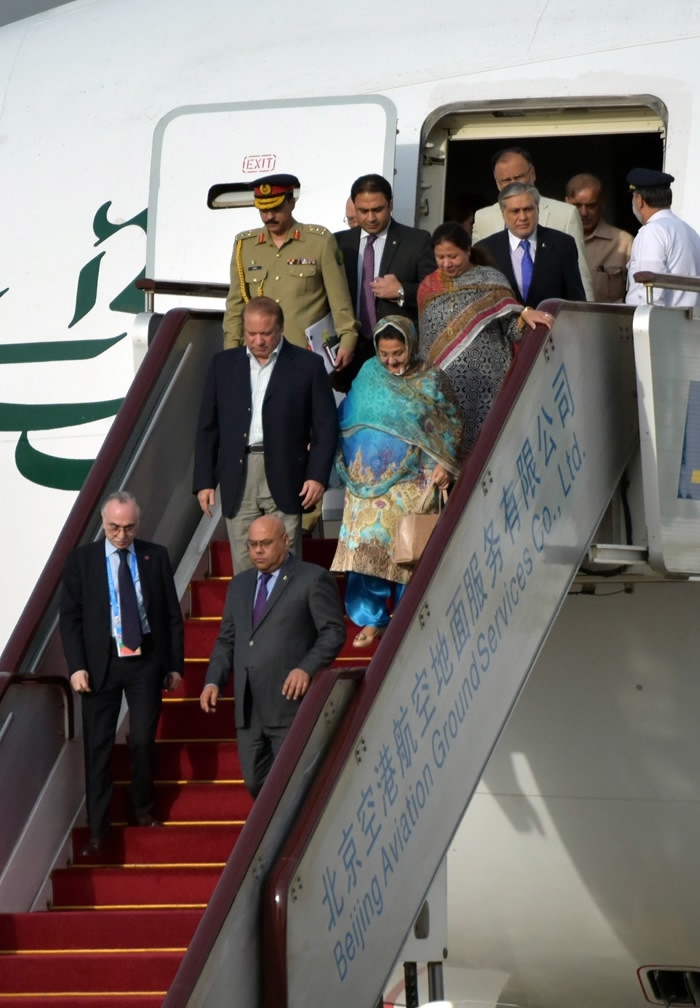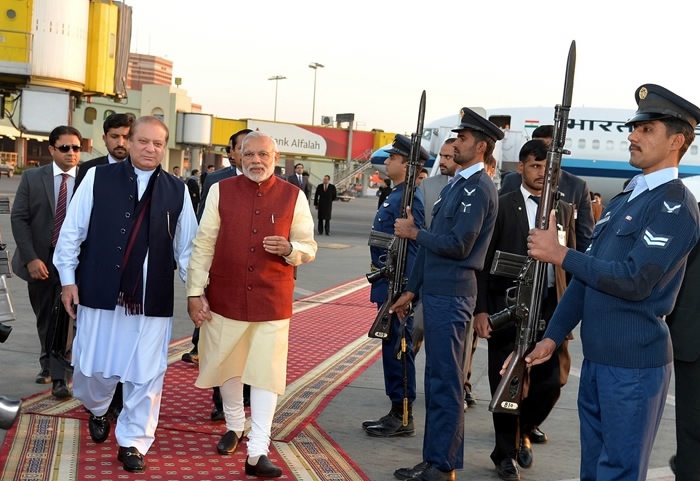The upcoming summit of the Shanghai Cooperation Organization (SCO) in Astana, Kazakhstan could herald a new era for the growing international organization, boosting nuclear non-proliferation efforts across the globe and China's Belt and Road Initiative, a new report on the development of the SCO estimates said.
Jointly released by the Institute of Russian, East European and Central Asian Studies of the Chinese Academy of Social Sciences and the Social Sciences Academic Press (China) on Tuesday, the report indicates that the accession of India and Pakistan to the SCO will create new opportunities for the region and the world.

Chinese Foreign Minister Wang Yi (L) says the development of the SCO is facing new opportunities as well as challenges at a joint press conference with his Russian counterpart Sergei Lavrov in Moscow, Russia, May 26, 2017. /Xinhua Photo
The two South Asian nations will become full SCO members during the two-day Astana summit starting Thursday. Chinese President Xi Jinping will attend the meeting as well.
The report highlights two potential impacts of the SCO expansion. First, the organization will include four nuclear powers, namely Russia, China, India, and Pakistan. With close coordination among the four members, the SCO will be able to play an active role in global efforts to prevent nuclear proliferation, contributing significantly to maintaining world peace.

May 12, 2017: Led by Prime Minister Nawaz Sharif (L, 2nd row), a Pakistani delegation arrives in Beijing, China to attend the Belt and Road Forum for International Cooperation. /VCG Photo
Second, the Belt and Road Initiative proposed by China will probably get India's support. At present, while Pakistan shows great enthusiasm in the initiative, working with China on an "economic corridor," its South Asian rival India has not officially embraced the blueprint yet and was absent from the Belt and Road Forum for International Cooperation in Beijing last month. But the report believes that India may endorse the initiative after joining the SCO alongside Pakistan, which will enhance the coordination of development strategies of relevant countries and facilitate a more comprehensive integration of Eurasia.
After the admission of India and Pakistan, the SCO will include as many as 44 percent of the world's population and its member states will account for 25 percent of the global gross domestic product, the report stresses, adding that the organization will play a more constructive role in international affairs and make more contributions to building a fair and reasonable new world order both politically and economically.
The report called on the SCO to improve internal coordination and strengthen solidarity among the member states.

December 25, 2015: Pakistani Prime Minister Nawaz Sharif (L) welcomes visiting Indian Prime Minister Narendra Modi (C) in Lahore, Pakistan. /VCG Photo
The SCO was created as a permanent intergovernmental international organization in Shanghai in east China on June 15, 2001, followed by the signing of the SCO Charter in Russian city St. Petersburg a year later. It currently comprises six member states: Kazakhstan, China, Kyrgyzstan, Russia, Tajikistan and Uzbekistan.
The Astana summit is also expected to discuss Iran's application to join the SCO as an official member.
Related stories:









